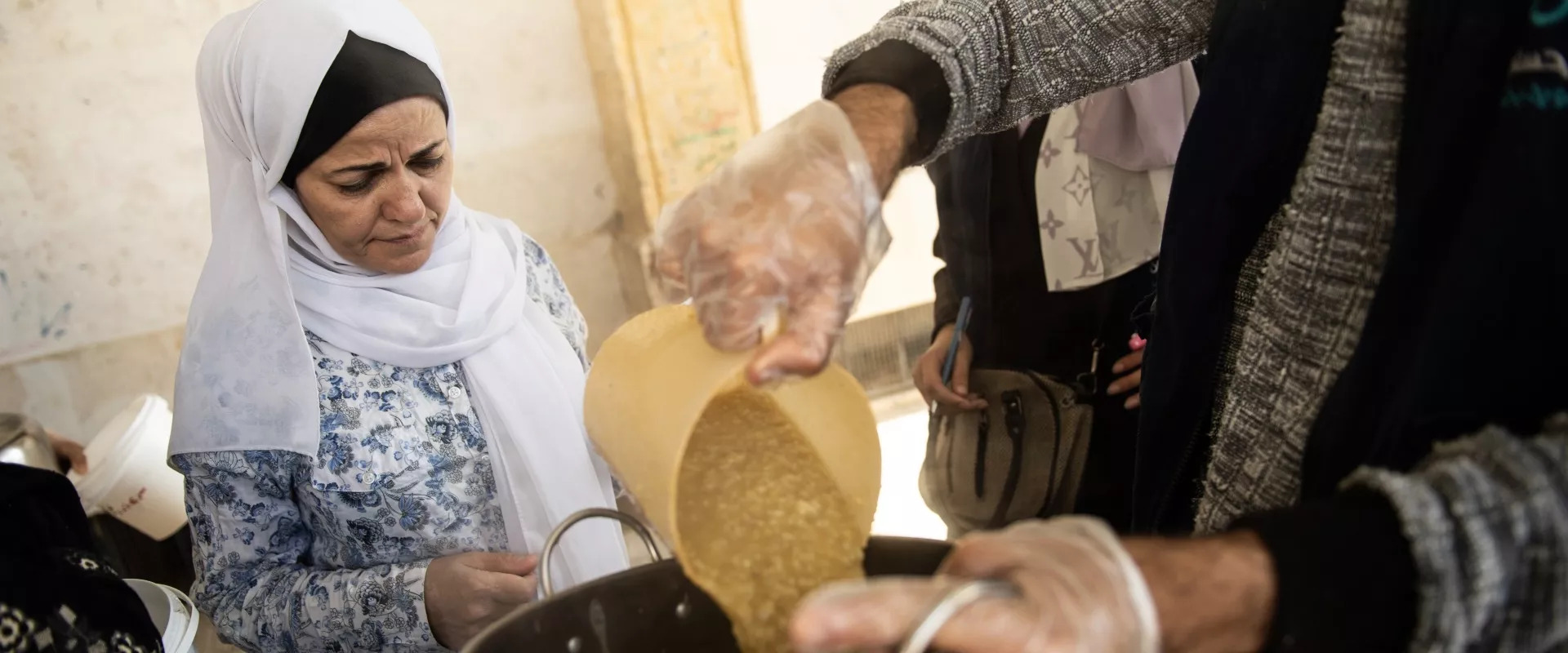After 13 years of war, Syria is suffering from the highest humanitarian needs in its recent history. It is the sixth most food-insecure country in the world, and 16.7 million Syrians depend on humanitarian assistance to survive. In addition to the protracted conflict, Syria faces multiple crises: displacement, droughts, cholera and other disease outbreaks, and natural disasters such as last year’s devastating earthquake.
“The current situation is extremely difficult; 90% of the population lives in poverty with no signs of improvement in sight. It is essential to continue saving lives, but it is also crucial to invest in recovery so that the most vulnerable people can rebuild their lives in dignity,” says Darius Zietek, Action Against Hunger’s Country Director for Syria.
Worsening Economic Crisis Hits Vulnerable Families Hard
Since the beginning of the year, Syria has experienced a global inflation rate of 100%. Record fuel and food prices are having a devastating effect on the country’s most vulnerable people. Families have been forced to choose between buying food, school, medicine, or fuel.
“The frigid winter temperatures have further increased the vulnerability of the Syrian population, as many cannot afford to buy fuel to heat their homes,” says Zietek.
“We used to stay with between 10 and 15 families in the same room, with no privacy. Now, thanks to these solar panels installed by Action Against Hunger, we have locks and lighting in every room and every family has their space. Life has, somehow, returned to normal,” says Duha al Ashkar, a mother of four who found refuge with 400 other families in a school rehabilitated by Action Against Hunger.
Action Against Hunger’s Work in Syria
Action Against Hunger has been operating in Syria since 2008 and is one of the most important international humanitarian organisations providing assistance in the country. In 2023, our programs reached 800,000 people in need.
Our teams help to restore resilience; provide reproductive health services and primary, maternal and child healthcare; supply water and sanitation in emergencies; support farmers and families through training and income-generating initiatives; and improve access to safe drinking water by strengthening systems. Our humanitarian response is vital to alleviating suffering and laying the foundation for a lasting recovery.
“Humanitarian crises are multiplying. International attention tends to focus on the most recent emergencies, but we must not forget Syria,” concludes Zietek.


